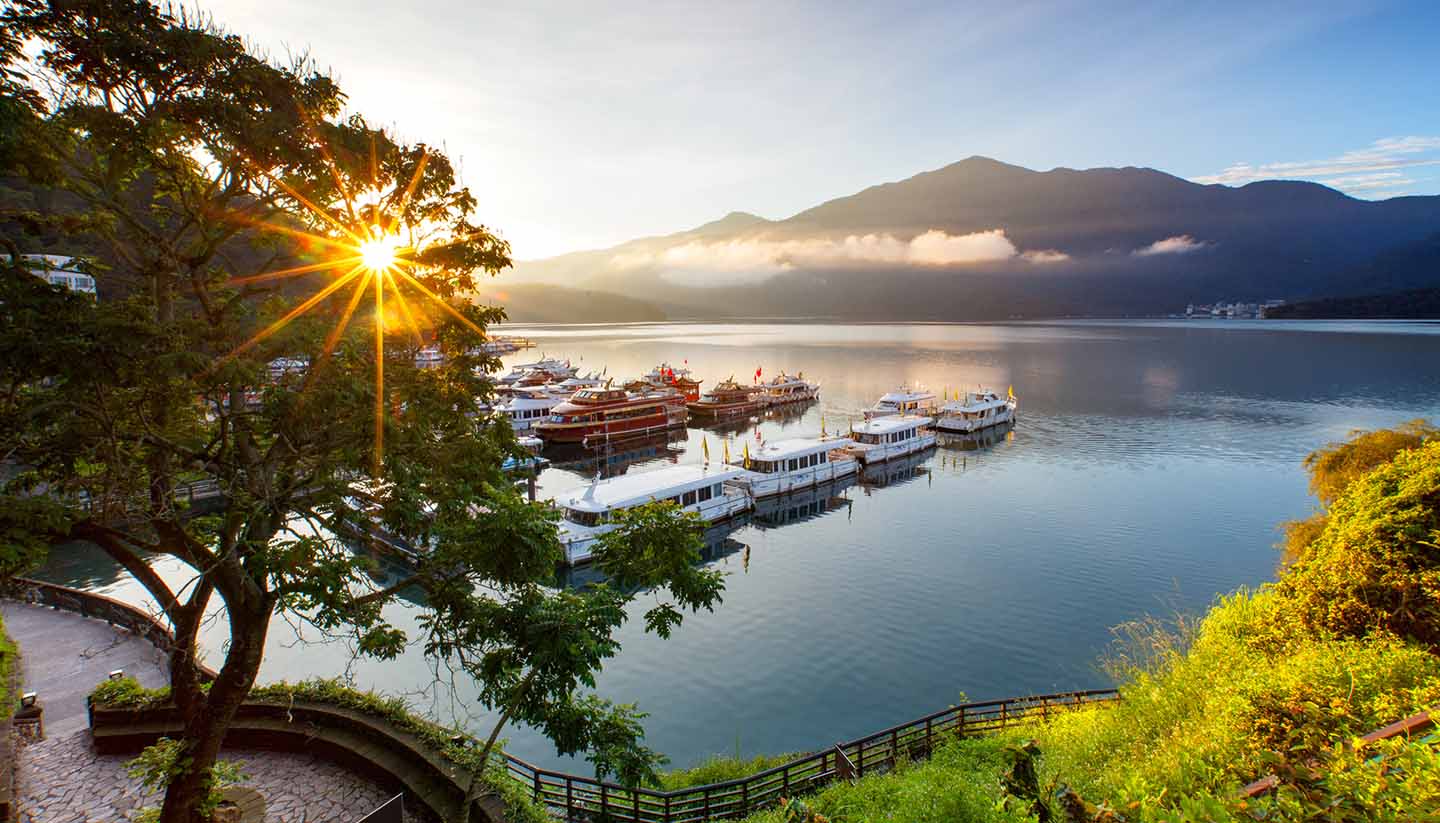Taiwan History, Language and Culture
History of Taiwan
Taiwan's history is shaped by waves of migration, colonisation, and cultural exchange. For thousands of years, the island was home to indigenous Austronesian peoples, whose diverse cultures still survive today in Taiwan's mountains and outer islands. The 17th century saw the arrival of European powers, with the Dutch and Spanish establishing trading posts before being driven out by Chinese Ming loyalist Koxinga, who set up a short-lived kingdom.
Taiwan later became part of the Qing Empire, drawing settlers from China's Fujian and Guangdong provinces. In 1895, following defeat in the First Sino-Japanese War, Taiwan was ceded to Japan, which ruled the island for fifty years. The Japanese period left a lasting legacy—modern infrastructure, a strong education system, and architectural influences still visible in towns and cities today.
After World War II, Taiwan was placed under the control of the Republic of China (ROC). Following the Chinese Civil War, the ROC government, led by Chiang Kai-shek, retreated to Taiwan in 1949 after the Communist Party took control of mainland China. Taiwan then entered a period of authoritarian rule under martial law, which lasted until the late 1980s.
The decades since have seen Taiwan transform into a thriving democracy and one of Asia's most vibrant societies. Its unique political status remains a sensitive issue—it operates as a de facto independent state, with its own government, military, and economy, though it is not universally recognised as a separate nation. Today, Taiwan blends deep historical roots with a strong sense of identity and openness, offering visitors a fascinating window into a place that is proudly itself.
Did you know?
• Taiwan uses two official calendars – the Gregorian and the Minguo, which began in 1911 with the founding of the Republic of China.
• Taiwan's National Palace Museum holds one of the largest collections of Chinese imperial artefacts in the world; many of which were evacuated from Beijing's Forbidden City during the Chinese Civil War.
• Taiwan is home to the world's highest building made from bamboo-inspired architecture—Taipei 101, designed to withstand typhoons and earthquakes, draws on both cutting-edge engineering and traditional symbolism.
Taiwan Culture
Religion in Taiwan
Buddhist (35%), Taoist (33%), Folk religions (10%), Christian (3.9%), Others (18.2%).
Social Conventions in Taiwan
Taiwanese society is warm, polite, and deeply influenced by a blend of Confucian values, local customs, and modern sensibilities. Respect for others, especially elders and people in positions of authority, is central to daily interactions. Politeness, modesty, and a non-confrontational attitude are appreciated and go a long way when engaging with locals.
A friendly bow or nod is a common greeting, though handshakes are also widely accepted, particularly in business or formal situations. Titles such as "Teacher", "Manager", or "Doctor" are often used in place of first names, reflecting the importance of hierarchy and respect.
Shoes are usually removed before entering someone's home, and guests may be offered slippers. If invited to a home, it is customary to bring a small gift such as fruit, pastries, or a souvenir from your home country. Avoid giving clocks or anything in sets of four, as these are associated with bad luck.
In public spaces, quiet and orderly behaviour is the norm. Speaking loudly on public transport or in confined spaces is considered impolite. Queuing is strictly observed, and you'll often see neat lines at MRT stations, lifts, and bus stops.
The disposal of toilet paper in Taiwan
In Taiwan, the disposal of toilet paper has been a subject of both traditional practices and evolving guidelines. Traditionally, many restrooms in Taiwan featured bins beside the toilet for disposing of used toilet paper, due to concerns about older plumbing systems. However, in recent years, the government has encouraged flushing toilet paper to improve hygiene and reduce waste. In practice, this varies—modern buildings and hotels typically have plumbing that can handle flushed paper, while some older establishments or rural areas may still advise against it. Visitors are advised to check for signs and follow local guidance: if a bin is provided and a sign asks you not to flush, it's best to comply.
Language in Taiwan
The official language of Taiwan is Mandarin Chinese (also known as Guoyu), and it's used in government, education, and media. However, many Taiwanese also speak Taiwanese Hokkien (commonly referred to as "Taiwanese"), especially in the south and among older generations.
While English is taught in schools and many younger people have a basic grasp, it's not widely spoken outside of major cities or tourist areas. That said, signs in English are common on public transport and at most tourist attractions, and locals are generally helpful—gestures, translation apps, and a friendly attitude go a long way.
Phrases
你好 (Nǐ hǎo) – Hello
謝謝 (Xièxiè) – Thank you
對不起 (Duìbùqǐ) – Sorry / Excuse me
多少錢?(Duōshǎo qián?) – How much does it cost?
我不要 (Wǒ bú yào) – I don’t want it / No, thank you
再見 (Zàijiàn) – Goodbye


